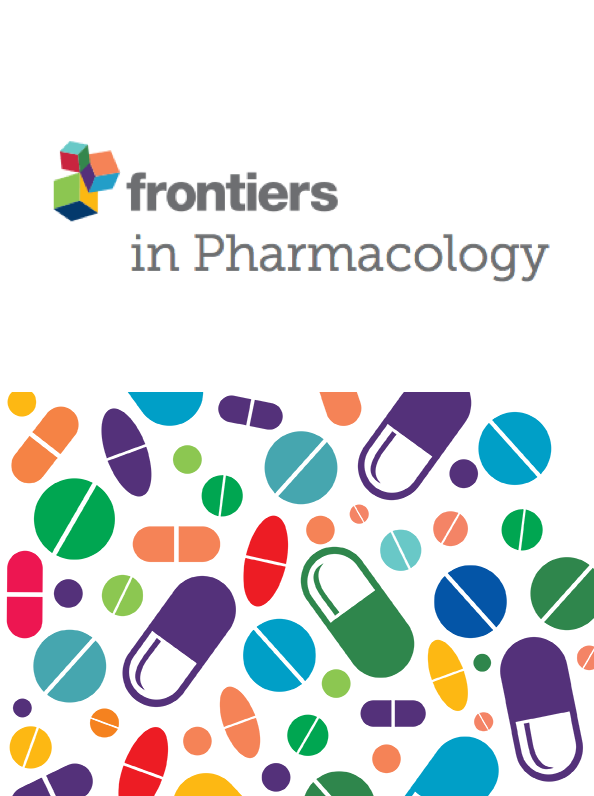Muzaffar Kayumov, Parthiban Marimuthu, Jamoliddin Razzokov, Nurkhodja Mukhamedov, Akmal Asrorov, Nodir S Berdiev, Jamolitdin F Ziyavitdinov, Ansor Yashinov, Yuliya Oshchepkova, Shavkat Salikhov, Sharafitdin Mirzaakhmedov
下载PDF
{"title":"计算和体外评估苏木衍生的©Rutan化合物对 Sars-CoV-2 Mpro 的抑制作用。","authors":"Muzaffar Kayumov, Parthiban Marimuthu, Jamoliddin Razzokov, Nurkhodja Mukhamedov, Akmal Asrorov, Nodir S Berdiev, Jamolitdin F Ziyavitdinov, Ansor Yashinov, Yuliya Oshchepkova, Shavkat Salikhov, Sharafitdin Mirzaakhmedov","doi":"10.3389/fphar.2025.1518463","DOIUrl":null,"url":null,"abstract":"<p><p>The emergence of the SARS-CoV-2 virus caused the COVID-19 outbreak leading to a global pandemic. Natural substances started being screened for their antiviral activity by computational and <i>in-vitro</i> techniques. Here, we evaluated the anti-SARS-CoV-2 main protease (M<sup>pro</sup>) efficacy of <sup>©</sup>Rutan, which contains five polyphenols (R5, R6, R7, R7', and R8) extracted from sumac <i>Rhus coriaria</i> L. We obtained three fractions after large-scale purification: fraction 1 held R5, fraction 2 consisted of R6, R7 and R7', and fraction 3 held R8. <i>In vitro</i> results showed their anti-M<sup>pro</sup> potential: IC<sub>50</sub> values of R5 and R8 made 42.52 µM and 5.48 µM, respectively. Further, we studied M<sup>pro</sup>-polyphenol interactions by <i>in silico</i> analysis to understand mechanistic extrapolation of Rutan binding nature with M<sup>pro</sup>. We extensively incorporated a series of <i>in silico</i> techniques. Initially, for the docking protocol validation, redocking of the co-crystal ligand GC-376* to the binding pocket of M<sup>pro</sup> was carried out. The representative docked complexes were subjected to long-range 500 ns molecular dynamics simulations. The binding free energy (BFE in kcal/mol) of components were calculated as follows: R8 (-104.636) > R6 (-93.754) > R7' (-92.113) > R5 (-81.115) > R7 (-67.243). <i>In silico</i> results of R5 and R8 correspond with their <i>in vitro</i> outcomes. Furthermore, the per-residue decomposition analysis showed C145, E166, and Q189 residues as the hotspot residues for components contributing to maximum BFE energies. All five components effectively interact with the catalytic pocket of M<sup>pro</sup> and form stable complexes that allow the estimation of their inhibitory activity. Assay kit analyses revealed that Rutan and its components have effective anti-SARS-CoV-2 M<sup>pro</sup> inhibitory activity.</p>","PeriodicalId":12491,"journal":{"name":"Frontiers in Pharmacology","volume":"16 ","pages":"1518463"},"PeriodicalIF":4.4000,"publicationDate":"2025-02-04","publicationTypes":"Journal Article","fieldsOfStudy":null,"isOpenAccess":false,"openAccessPdf":"https://www.ncbi.nlm.nih.gov/pmc/articles/PMC11832515/pdf/","citationCount":"0","resultStr":"{\"title\":\"Computational and <i>in vitro</i> evaluation of sumac-derived <sup>©</sup>Rutan compounds towards Sars-CoV-2 M<sup>pro</sup> inhibition.\",\"authors\":\"Muzaffar Kayumov, Parthiban Marimuthu, Jamoliddin Razzokov, Nurkhodja Mukhamedov, Akmal Asrorov, Nodir S Berdiev, Jamolitdin F Ziyavitdinov, Ansor Yashinov, Yuliya Oshchepkova, Shavkat Salikhov, Sharafitdin Mirzaakhmedov\",\"doi\":\"10.3389/fphar.2025.1518463\",\"DOIUrl\":null,\"url\":null,\"abstract\":\"<p><p>The emergence of the SARS-CoV-2 virus caused the COVID-19 outbreak leading to a global pandemic. Natural substances started being screened for their antiviral activity by computational and <i>in-vitro</i> techniques. Here, we evaluated the anti-SARS-CoV-2 main protease (M<sup>pro</sup>) efficacy of <sup>©</sup>Rutan, which contains five polyphenols (R5, R6, R7, R7', and R8) extracted from sumac <i>Rhus coriaria</i> L. We obtained three fractions after large-scale purification: fraction 1 held R5, fraction 2 consisted of R6, R7 and R7', and fraction 3 held R8. <i>In vitro</i> results showed their anti-M<sup>pro</sup> potential: IC<sub>50</sub> values of R5 and R8 made 42.52 µM and 5.48 µM, respectively. Further, we studied M<sup>pro</sup>-polyphenol interactions by <i>in silico</i> analysis to understand mechanistic extrapolation of Rutan binding nature with M<sup>pro</sup>. We extensively incorporated a series of <i>in silico</i> techniques. Initially, for the docking protocol validation, redocking of the co-crystal ligand GC-376* to the binding pocket of M<sup>pro</sup> was carried out. The representative docked complexes were subjected to long-range 500 ns molecular dynamics simulations. The binding free energy (BFE in kcal/mol) of components were calculated as follows: R8 (-104.636) > R6 (-93.754) > R7' (-92.113) > R5 (-81.115) > R7 (-67.243). <i>In silico</i> results of R5 and R8 correspond with their <i>in vitro</i> outcomes. Furthermore, the per-residue decomposition analysis showed C145, E166, and Q189 residues as the hotspot residues for components contributing to maximum BFE energies. All five components effectively interact with the catalytic pocket of M<sup>pro</sup> and form stable complexes that allow the estimation of their inhibitory activity. Assay kit analyses revealed that Rutan and its components have effective anti-SARS-CoV-2 M<sup>pro</sup> inhibitory activity.</p>\",\"PeriodicalId\":12491,\"journal\":{\"name\":\"Frontiers in Pharmacology\",\"volume\":\"16 \",\"pages\":\"1518463\"},\"PeriodicalIF\":4.4000,\"publicationDate\":\"2025-02-04\",\"publicationTypes\":\"Journal Article\",\"fieldsOfStudy\":null,\"isOpenAccess\":false,\"openAccessPdf\":\"https://www.ncbi.nlm.nih.gov/pmc/articles/PMC11832515/pdf/\",\"citationCount\":\"0\",\"resultStr\":null,\"platform\":\"Semanticscholar\",\"paperid\":null,\"PeriodicalName\":\"Frontiers in Pharmacology\",\"FirstCategoryId\":\"3\",\"ListUrlMain\":\"https://doi.org/10.3389/fphar.2025.1518463\",\"RegionNum\":2,\"RegionCategory\":\"医学\",\"ArticlePicture\":[],\"TitleCN\":null,\"AbstractTextCN\":null,\"PMCID\":null,\"EPubDate\":\"2025/1/1 0:00:00\",\"PubModel\":\"eCollection\",\"JCR\":\"Q1\",\"JCRName\":\"PHARMACOLOGY & PHARMACY\",\"Score\":null,\"Total\":0}","platform":"Semanticscholar","paperid":null,"PeriodicalName":"Frontiers in Pharmacology","FirstCategoryId":"3","ListUrlMain":"https://doi.org/10.3389/fphar.2025.1518463","RegionNum":2,"RegionCategory":"医学","ArticlePicture":[],"TitleCN":null,"AbstractTextCN":null,"PMCID":null,"EPubDate":"2025/1/1 0:00:00","PubModel":"eCollection","JCR":"Q1","JCRName":"PHARMACOLOGY & PHARMACY","Score":null,"Total":0}
引用次数: 0
引用
批量引用

 求助内容:
求助内容: 应助结果提醒方式:
应助结果提醒方式:


